 |
|
|
| View this newsletter online |
 |
Research School for Socio-Economic and
Natural Sciences of the Environment |
| SENSE e-News |
|
|
  |
Newsletter November 2021
02 November 2021 |
|
 |
| • |
New PhD-course helps researchers make impact with research ›› |
| • |
Coastal Futures: IHE Delft launches interactive tool showing how climate change could affect coastal areas ›› |
| • |
IHE Delft alumnus Yared Abebe awarded prestigious prize for PhD thesis on modelling human-flood interactions ›› |
| • |
Rik Leemans bij De Week van Gelderland over de Nationale Klimaatweek ›› |
| • |
From skating to taking a dip: will we only be able to swim the Frisian Elfstedentocht in the future? ›› |
| • |
A call for papers for the special issue of the Journal of Integrative Environmental Sciences, titled "Integrative sustainability education: emerging concepts and approaches" (deadline: 15 December 2021) ›› |
| • |
A call for papers for the special issue of the Journal of Integrative Environmental Sciences, titled "Integrative approaches to the environmental and socio-economic SDGs" (deadline: 31 December 2021) ›› |
| • |
A call for papers for the “Water Journal” special issue titled "Water Management for Climate Smart Agriculture" (deadline: 15 March 2022) ›› |
| • |
Call SENSE Course Development (deadline: 31 May 2022) ›› |
| • |
Environmental and Resource Economics – Module: Circular Economy, 15-19 November 2021 ›› |
| • |
Overview of PhD / postdoc courses November - December 2021 ›› |
| • |
Overview of recently announced PhD / postdoc courses ›› |
| • |
Overview of upcoming events November ›› |
| • |
Overview of recently announced events ›› |
| • |
Upcoming PhD graduations ›› |
| • |
Overview job vacancies ›› |
| • |
Other vacancies in the SENSE field ›› |
|
|
|
 |
 |
 |
| Editorial |
 |
| Science and societal engagement |
Last week I attended a meeting about research on plastic at Wageningen UR. I even gave a little presentation about my own citizen science research on cigarette butt pollution. That was exciting to do, since I do not work as a scientist. Did I cross a line here, to present my societally motivated, unscientific project in a company of scientists?
My presentation seemed to ignite something among other participants of the meeting: the wish to make a difference, not only scientifically, but also societally, however small. The wish to ban unnecessary single-use plastics from campus. The tension between the wish to contribute to a sustainable society on the one hand, and a relevant conference on Lanzarote that can only be reached by airplane on the other hand. One of the scientists present apologised that she might sound like an activist. If so, did she cross a line?
Is there a hard line between being a citizen and being a scientist? What is the relation between a scientist’s societal drive for a certain research topic, science ethics, and societal responsibility? Can an activist also be a scientist? Can a scientist also be an activist?
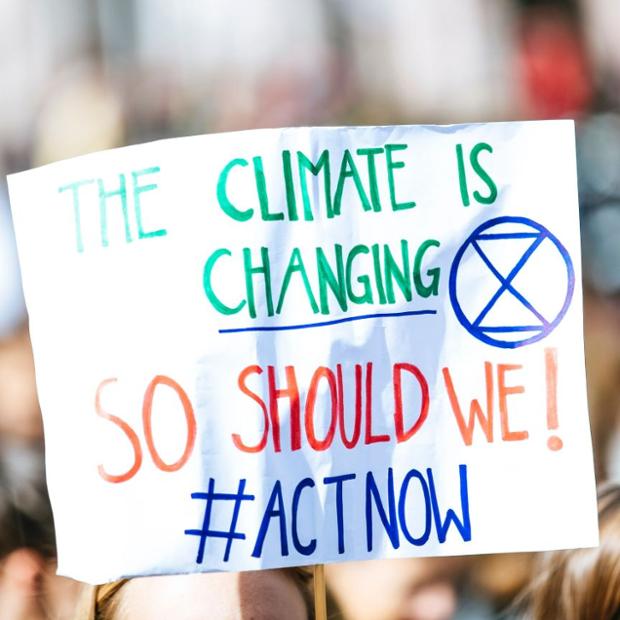 This week COP26 has started. Nations come together and talk about the climate. This week COP26 has started. Nations come together and talk about the climate.
In the Netherlands it is National Climate Week and on November 6th a Climate March will be held in Amsterdam. Did I cross a line when I announced the Climate March on the SENSE website and in this newsletter of our scientific network?
There obviously is a tension between science and societal engagement; between facts, critical reflection on facts, and a societal stance. On the other hand: scientists acquire knowledge that is relevant to society and they may see dangers ahead that other citizens are not yet aware of. Doesn’t that imply an extra responsibility for scientists to speak out to society in a way they can be heard and understood by the general public?
These questions are occupying my mind at the moment. Should we initiate more discussion about this within our SENSE network?
I am pretty sure many scientists in our community are looking for opportunities to link their societal engagement to their research, or their scientific findings to societal partners.
Fortunately a lot is already happening, which is among other things illustrated by the overwhelming interest in the new course “Transformative Research for Global Social-Environmental Challenges”, which was positively discussed in the Wageningen UR journal Resource last month.
I wish you all a good month with productive scientific work as well as reflection and, if you feel up to it, some societal action.
Marjolijn Dannenburg, Communication officer |
|
|
 |
| SENSE News |
 |
| New PhD-course helps researchers make impact with research |
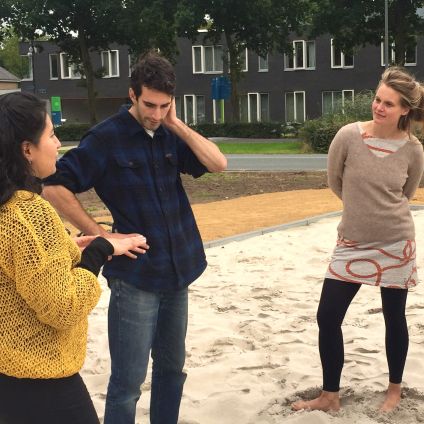 The Wageningen UR journal Resource published an article about the new PhD course Transformative Research for Global Social-Environmental Challenges. The Wageningen UR journal Resource published an article about the new PhD course Transformative Research for Global Social-Environmental Challenges.
Participant Wietse Wiersma: "The course does not aim to provide definitive answers, but it raises questions in such a way that you become enabled to work through issues that come up while navigating the science-society interface. It was wonderful to be with a group of people that share the feeling that research can play a powerful role in societal transformations, yet are struggling with how to realize this." |
|
|
| Coastal Futures: IHE Delft launches interactive tool showing how climate change could affect coastal areas |
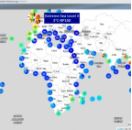 How will the coastal areas of the world be affected by global warming? This is an important question for coastal communities and coastal scientists, engineers, planners, managers and policy makers. A new online viewer provides a quick overview of projections for sea level rise, coastal flooding, shoreline retreat and extreme waves by combining several published state-of-the-art data sets on coastal climatic impact-drivers. How will the coastal areas of the world be affected by global warming? This is an important question for coastal communities and coastal scientists, engineers, planners, managers and policy makers. A new online viewer provides a quick overview of projections for sea level rise, coastal flooding, shoreline retreat and extreme waves by combining several published state-of-the-art data sets on coastal climatic impact-drivers. |
|
|
| IHE Delft alumnus Yared Abebe awarded prestigious prize for PhD thesis on modelling human-flood interactions |
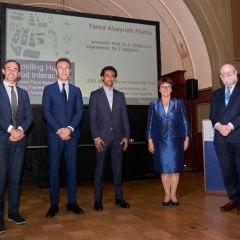 Dr. Yared Abayneh Abebe, an IHE Delft alumnus from Ethiopia, earlier this month was honoured with the technical Steven Hoogendijk Prize after a jury selected his thesis as the best among 40 Cum Laude theses defended at TU Delft in the past two years. Dr. Yared Abayneh Abebe, an IHE Delft alumnus from Ethiopia, earlier this month was honoured with the technical Steven Hoogendijk Prize after a jury selected his thesis as the best among 40 Cum Laude theses defended at TU Delft in the past two years. |
|
|
| Rik Leemans bij De Week van Gelderland over de Nationale Klimaatweek |
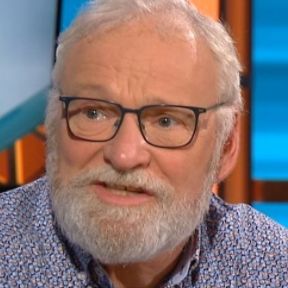 On Friday 22 October climate scientist Rik Leemans (WUR) was a guest in the programme "De Week van Gelderland", together with energy coach Rob Groen and behavioural psychologist Kyron Olmeijer for the occasion on the National Climate Week. On Friday 22 October climate scientist Rik Leemans (WUR) was a guest in the programme "De Week van Gelderland", together with energy coach Rob Groen and behavioural psychologist Kyron Olmeijer for the occasion on the National Climate Week.
As far as obtaining the climate goals is concerned, the Netherlands are the worst boy in the class, he told. "Implementing all measures is going really slow. A lot more has to be done." |
|
|
| From skating to taking a dip: will we only be able to swim the Frisian Elfstedentocht in the future? |
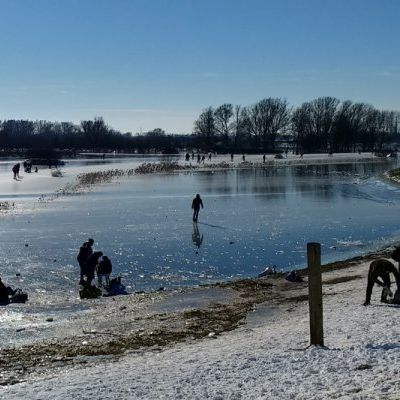 At the sight of the first snowflake, many a Dutchman eagerly anticipates the possibility of a Frisian Elfstedentocht skating marathon. This epic route covers not just 11 Frisian towns but also many lakes. This tour requires just one thing: sufficient ice on our waters. However, not a single Frisian skating marathon has taken place since 1997. An international study published in Nature Geoscience on October 18, to which Wageningen University & Research contributed, now shows that the lakes across the globe are warming up, and the number of days of frost will decline. ‘This warming is not just an issue that spoils our fun on the ice, but may also affect the water quality of our lakes’, the researchers state. At the sight of the first snowflake, many a Dutchman eagerly anticipates the possibility of a Frisian Elfstedentocht skating marathon. This epic route covers not just 11 Frisian towns but also many lakes. This tour requires just one thing: sufficient ice on our waters. However, not a single Frisian skating marathon has taken place since 1997. An international study published in Nature Geoscience on October 18, to which Wageningen University & Research contributed, now shows that the lakes across the globe are warming up, and the number of days of frost will decline. ‘This warming is not just an issue that spoils our fun on the ice, but may also affect the water quality of our lakes’, the researchers state. |
|
|
|
| We are currently developing a proper blog functionality for the SENSE website. In case you are interested to have your own research blog on the SENSE website, please contact marjolijn.dannenburg@wur.nl. |
|
|
| Calls |
 |
| A call for papers for the special issue of the Journal of Integrative Environmental Sciences, titled "Integrative sustainability education: emerging concepts and approaches" (deadline: 15 December 2021) |
Tackling the complex challenges and interlinked elements of sustainability require integrative knowledge and skills to be able to reach across disciplines, actors from all parts of society, scales, challenges etc. This is a so far under-represented topic in the scientific literature on sustainability education and we aim to address it in our special issue “Integrative sustainability education: emerging concepts and approaches” in the Journal of Integrative Environmental Sciences.
We invite interested authors to consider the following dimensions as starting points for defining integration in their articles: sustainability in educational programming, student population, co-curricular activities, institutional level, disciplines/stakeholder engagement, and sustainability issues/challenges.
The special issue focusses on academic and lifelong education. We invite papers on the following research areas:
1) practical or content focused analyses of implementing integrative sustainability education,
2) formal institutional aspects of integrating sustainability education, and
3) the role of university teaching and lifelong learning in integrative sustainability education.
For more information, please check out the call for papers: https://think.taylorandfrancis.com/special_issues/integrative-sustainability-education/ or contact us by email.
We are looking forward to your contributions and the discussion on integrative sustainability education.
Sincerely, Birka Wicke*, Karin Rebel*, John Robinson and Henri Moll
* Copernicus Institute Utrecht University |
|
|
| A call for papers for the special issue of the Journal of Integrative Environmental Sciences, titled "Integrative approaches to the environmental and socio-economic SDGs" (deadline: 31 December 2021) |
The SDGs are particularly relevant for the Journal of Integrative Environmental Sciences (JIES). The vision of the SDGs is to transform the living conditions of all people on the Earth so that we can live within the ‘planetary boundaries’ while enjoying economic prosperity and social wellbeing. The transformative change aimed through the SDGs requires a paradigm shift in thinking to break away from the current development trajectories that are resource intensive, inefficient (hence wasteful), environmentally damaging, growth-driven, socially inequitable and unjust. The SDGs offer the opportunity to approach sustainable development in an integrated, interconnected way.
This special issue is part of a cross-disciplinary collection in support of the European Commission’s Horizon Missions, with contributions from across the Life, Earth and Environmental Sciences. These missions collectively represent important research and policy priorities facing our global society. The collection will be published to be timed with Earth Day 2022 (April 22nd, 2022) as part of a collaborative effort to support real-world research that addresses the SDGs and global policy priorities. |
|
|
| A call for papers for the “Water Journal” special issue titled "Water Management for Climate Smart Agriculture" (deadline: 15 March 2022) |
As you know, in agriculture water resources shortages have become an increasingly serious problem, particularly in arid and semi-arid regions due to climate change. Changes in rainfall and temperature patterns threatens the agricultural production and increase the vulnerability of people dependent on agriculture. In addition to that, up to 70% of global water consumptions go to the agriculture sector uses. Thus, improving water management especially for agriculture will support achieving the global goals of food and water security. Therefore, the Climate Smart Agriculture (CSA) approach is required to ensure the transforming and reorienting the agricultural systems to adapt to the effects of climate change and ensure smart use of the limited water available. In this light we find it important to share the latest insights on water management for climate smart agriculture.
We, therefore, would like to invite you to share your latest work on this topic in the form of a research or review paper for the special issue entitled "Water management for Climate Smart Agriculture" as part of the online MDPI Water journal.
Research papers are welcome on topics like: Water scarcity, Water conservation, Rain water harvesting, Water use efficiency, Irrigation (efficiency), Hydroponics, Salinity, Hydrological modelling. Attention to socio-economic, policy and gender related aspects are encouraged also. So, I invite you and your colleagues to submit your articles to this special issue.
Your submitted articles will provide future directions and guidelines for stakeholders like national and international agencies, policy makers, scientists and farmers to assess and solve the regional water and agriculture problems in arid and semi-arid regions.
Please let us know if you need any help. Thank you for your kind consideration.
Prof. Coen Ritsema*, Dr. Michel Riksen* and Dr. Karrar Mahdi* (karrar.mahdi@wur.nl)
*Wageningen University |
|
|
| Call SENSE Course Development (deadline: 31 May 2022) |
| To support the development of new courses and the collaboration between members, SENSE allocated an annual fund of 20.000 euros to support course development. Each proposal can apply for a maximum of 4.500 euro. Applications are open to all SENSE member institutes. |
|
|
|
 |
 |
|
|
|
 |
 |
| Upcoming Events |
 |
| Overview of upcoming events November 2021 |
|
|
|
|
| Overview of recently announced events |
|
|
|
|
| Upcoming PhD graduations |
 |
| Overview of PhD graduations upcoming period |
- Nur Hazimah Mohamed Nor
Microplastics' Journey into the Gut. Human exposure to microplastics and associated chemicals
1 November 2021, Wageningen University, Aquatic Ecology and Water Quality Management
- Anton Urfels
Managing water and time: a systems analysis of crop planting and irrigation in South Asia
2 November 2021, Wageningen University, Water Resource Management
- Nadia Bloemendaal
Weathering the Storm: Tropical Cyclone Risk under Climate Change
3 November 2021, VU University Amsterdam, Institute for Environmental Studies (IVM)
- Kamonashish Haldar
Urban Water Reuse in the Bengal Delta: Prospects, Challenges and Socio-Technical Solutions
3 November, Wageningen University, Environmental Technology
- Lars de Ruig
Rising waves of indecision: How financial incentives can support flood risk management
4 November 2021, VU University Amsterdam, Institute for Environmental Studies (IVM)
- Eva Kocbek
A novel approach to sludge treatment using microwave technology
5 November 2021, IHE Delft, Water Supply, Sanitation and Environmental Engineering
- Aurelia Akbar
Collaborative Spatial Learning for Improving Public Participation Practice in Indonesia
11 November 2021, University of Twente, Urban and regional and Geo-Information Management
- Ngo Quang Hieu
Development of an efficient modelling approach to support economically and socially acceptable flood risk reduction in coastal cities – Can Tho city, Mekong Delta, Viet Nam
22 November 2021, IHE Delft, Coastal & Urban Risk & Resilience
- Vitali Díaz Mercado
Spatio-temporal characterisation of drought: data analytics, modelling, tracking, impact and prediction
24 November 2021, IHE Delft, Hydroinformatics and Socio-Technical Innovation
- Sonu Khanal
Compound drivers of hydroclimatic extremes in large river basins: Mapping future floods and water resources by modeling compound drivers at multiple spatial and temporal scales
25 November 2021, VU University Amsterdam, Institute for Environmental Studies (IVM)
- Hao Chen
Integrated assessment of land restoration impacts on the Chinese Loess Plateau
25 November 2021, Wageningen University, Soil Physics and Land Management
- Gabriela Iacobuta
Enablers of ambitious climate action: Challenges and opportunities to combine climate change and sustainable development
29 November 2021, Wageningen University, Environmental Systems Analysis
|
|
|
|
 |
 |
|
 |
 |
| Job vacancies |
 |
| Overview of vacancies at SENSE partners |
- (Senior) Researcher (re-opened), IHE Delft
Apply before 15 November 2021
- Analytical Scientist environmental pollutants, Wageningen University and Research
- PhD candidate for the EU Horizon 2020 project LOCALISED, University of Twente
Apply before 21 November 2021
- Professor and Chair of the Remote Sensing Chair Group, Wageningen University
Apply before 22 November 2021
- Postdoc researcher AI technology for environmental governance in the EU, Wageningen University
Apply before 22 November 2021
- Manager of the Environmental Risk Assessment Team, Wageningen University
Apply before 23 November 2021
- Assistant Professor in Geo-information Science with a Focus on Advanced Visualization & Immersive Experiences Tenure Track, Wageningen University
Apply before 26 November 2021
- Assistant/Associate professor on "Water for sustainable development", University of Twente
Apply before 1 December 2021
- Assistant Professor in Environmental Law (Tenure Track), Wageningen University
Apply before 1 December 2021
- Postdoctoral Researcher in Global Climate Governance, Utrecht University
Apply before 1 December 2021
- Professor and Chair of the Public Administration and Policy Group, Wageningen University
Apply before 2 December 2021
- Assistant or Associate Professor in the field of atmospheric sciences, cloud/aerosols dynamics and microphysics, Tenure Track, Wageningen University
Apply before 15 December 2021
- Researcher (postdoc) Regulatory design of data protection in humanitarian practice, University of Twente
Apply before 19 December 2021
|
|
|
| Other vacancies in the SENSE field |
|
|
|
|
| More vacancies |
| During the month new vacancies are regularly posted on the SENSE vacancy page. |
|
|
|
 |
 |
|
 |
|
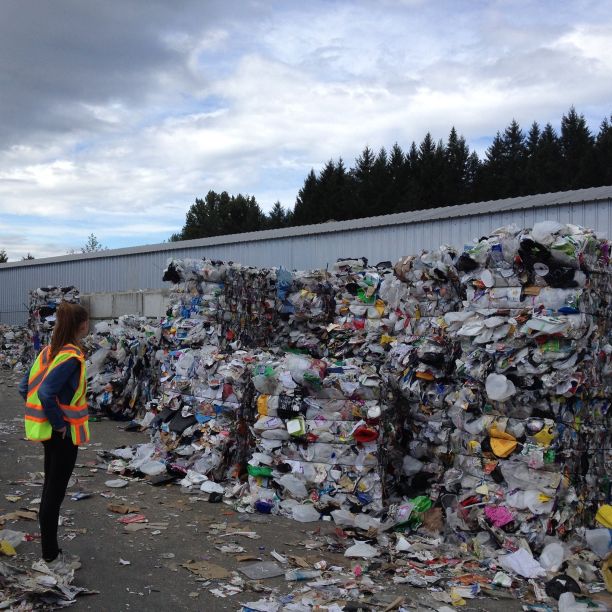 Why is there so much waste? Can or should it be reduced? By how much – and why, in the first place? The module “Circular Economy” picks up these questions. Reduction of waste, reduction of primary resource extraction, and increasing resource use efficiency are high on the political agenda of the EU and its member states. While much of the debate is about enhancing technologies that facilitate reuse, repair and recycling of goods, this course examines the economic rationale of the circular economy.
Why is there so much waste? Can or should it be reduced? By how much – and why, in the first place? The module “Circular Economy” picks up these questions. Reduction of waste, reduction of primary resource extraction, and increasing resource use efficiency are high on the political agenda of the EU and its member states. While much of the debate is about enhancing technologies that facilitate reuse, repair and recycling of goods, this course examines the economic rationale of the circular economy.

 This week
This week  The Wageningen UR journal Resource published an article about the new PhD course
The Wageningen UR journal Resource published an article about the new PhD course  How will the coastal areas of the world be affected by global warming? This is an important question for coastal communities and coastal scientists, engineers, planners, managers and policy makers. A new online viewer provides a quick overview of projections for sea level rise, coastal flooding, shoreline retreat and extreme waves by combining several published state-of-the-art data sets on coastal climatic impact-drivers.
How will the coastal areas of the world be affected by global warming? This is an important question for coastal communities and coastal scientists, engineers, planners, managers and policy makers. A new online viewer provides a quick overview of projections for sea level rise, coastal flooding, shoreline retreat and extreme waves by combining several published state-of-the-art data sets on coastal climatic impact-drivers. Dr. Yared Abayneh Abebe, an IHE Delft alumnus from Ethiopia, earlier this month was honoured with the technical Steven Hoogendijk Prize after a jury selected his thesis as the best among 40 Cum Laude theses defended at TU Delft in the past two years.
Dr. Yared Abayneh Abebe, an IHE Delft alumnus from Ethiopia, earlier this month was honoured with the technical Steven Hoogendijk Prize after a jury selected his thesis as the best among 40 Cum Laude theses defended at TU Delft in the past two years. On Friday 22 October climate scientist Rik Leemans (WUR) was a guest in the programme "De Week van Gelderland", together with energy coach Rob Groen and behavioural psychologist Kyron Olmeijer for the occasion on the National Climate Week.
On Friday 22 October climate scientist Rik Leemans (WUR) was a guest in the programme "De Week van Gelderland", together with energy coach Rob Groen and behavioural psychologist Kyron Olmeijer for the occasion on the National Climate Week. At the sight of the first snowflake, many a Dutchman eagerly anticipates the possibility of a Frisian Elfstedentocht skating marathon. This epic route covers not just 11 Frisian towns but also many lakes. This tour requires just one thing: sufficient ice on our waters. However, not a single Frisian skating marathon has taken place since 1997. An international study published in Nature Geoscience on October 18, to which Wageningen University & Research contributed, now shows that the lakes across the globe are warming up, and the number of days of frost will decline. ‘This warming is not just an issue that spoils our fun on the ice, but may also affect the water quality of our lakes’, the researchers state.
At the sight of the first snowflake, many a Dutchman eagerly anticipates the possibility of a Frisian Elfstedentocht skating marathon. This epic route covers not just 11 Frisian towns but also many lakes. This tour requires just one thing: sufficient ice on our waters. However, not a single Frisian skating marathon has taken place since 1997. An international study published in Nature Geoscience on October 18, to which Wageningen University & Research contributed, now shows that the lakes across the globe are warming up, and the number of days of frost will decline. ‘This warming is not just an issue that spoils our fun on the ice, but may also affect the water quality of our lakes’, the researchers state.